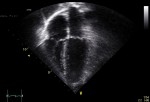There’s promising news on the breast cancer front.
A study published on-line this week in The Journal of Clinical Oncology (JCO) suggests that regular, low-dose aspirin use reduces the risk of recurrence and death from breast cancer among women who’ve had stage I, II or III (non-metastatic) disease.
This is a phenomenal report in three respects:
1. The dramatic results: among women who’ve had breast cancer, regular aspirin use was associated with a reduced risk of recurrence and of death from cancer by more than half;
2. The relevance; these findings might affect millions of women living after breast cancer, today;
3. The cost: aspirin is widely available without patent restriction. Aspirin costs around $5 for 100 tablets, several months’ supply.
Posted in Breast Cancer, cancer survival, cancer treatment, Medical News, Oncology (cancer), Women's HealthTagged aspirin, Breast Cancer, cancer medicine, cancer treatment, medical news, Women's Health

